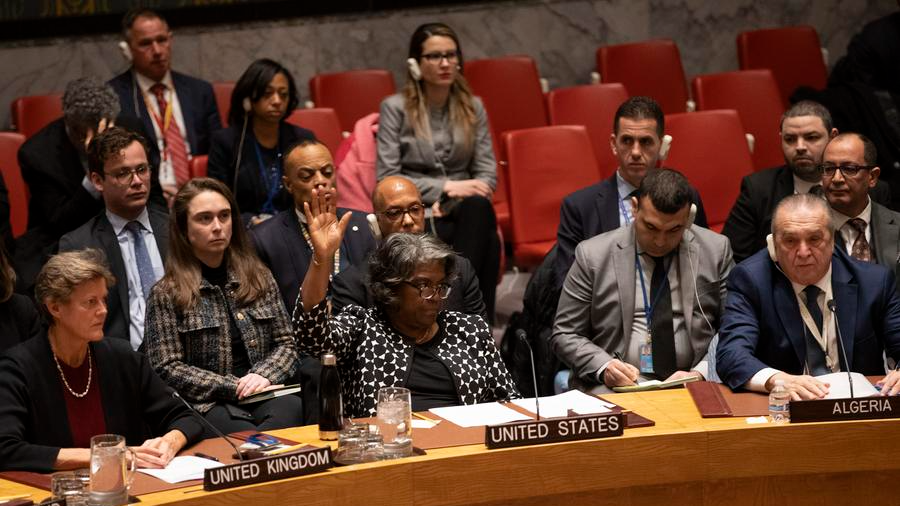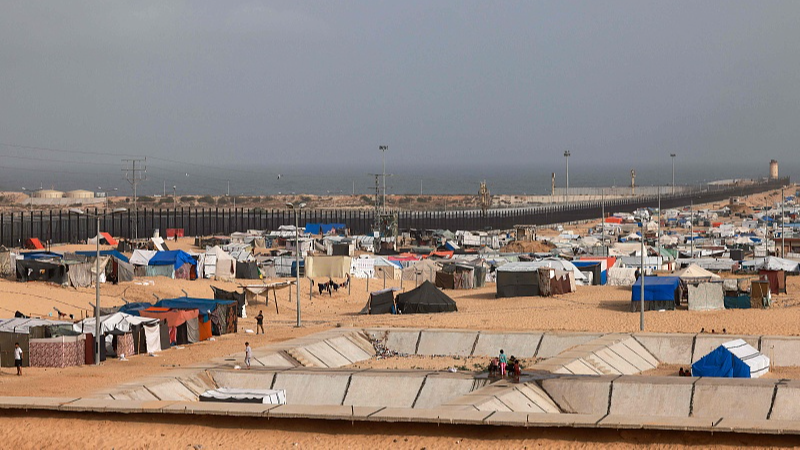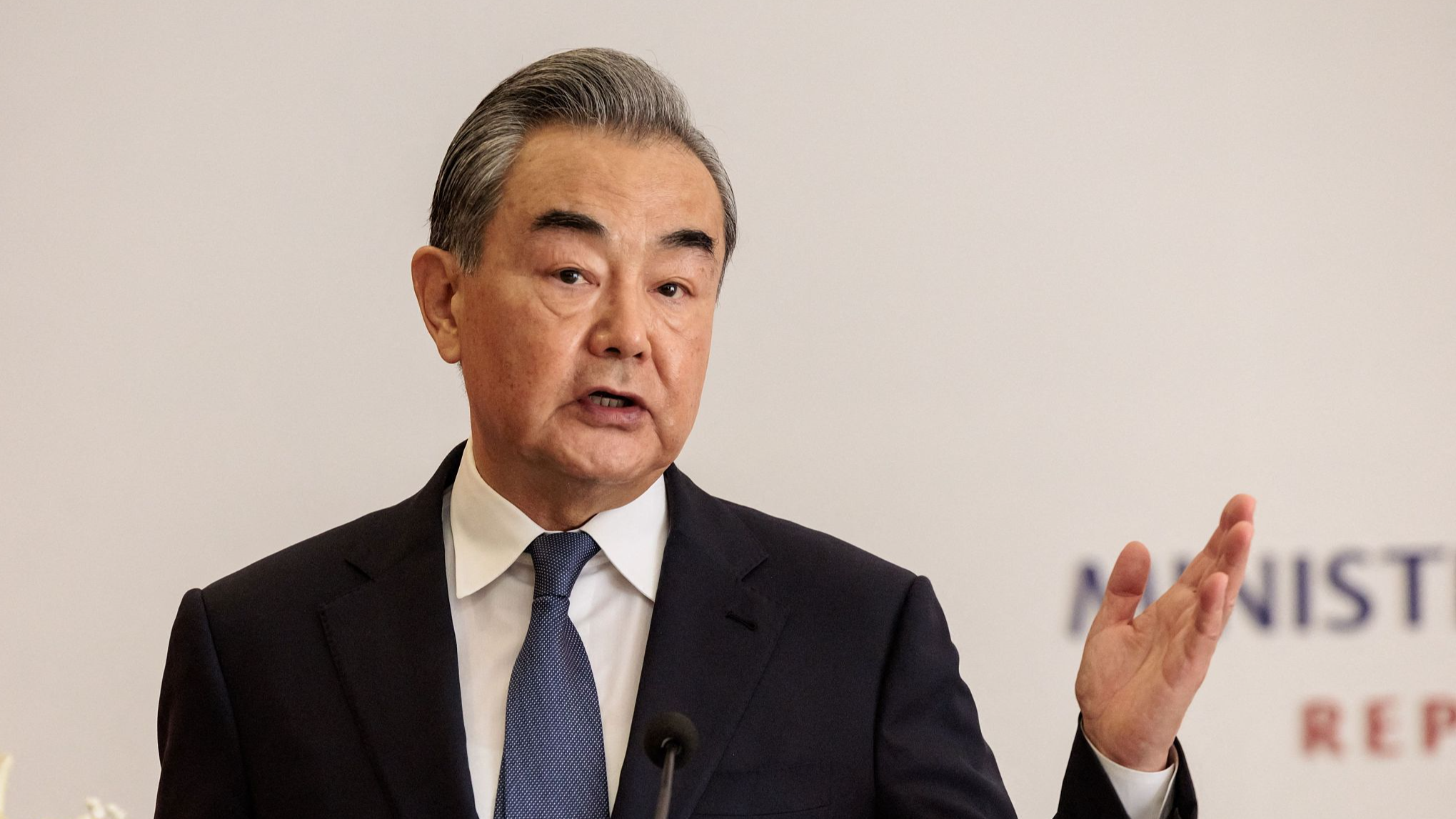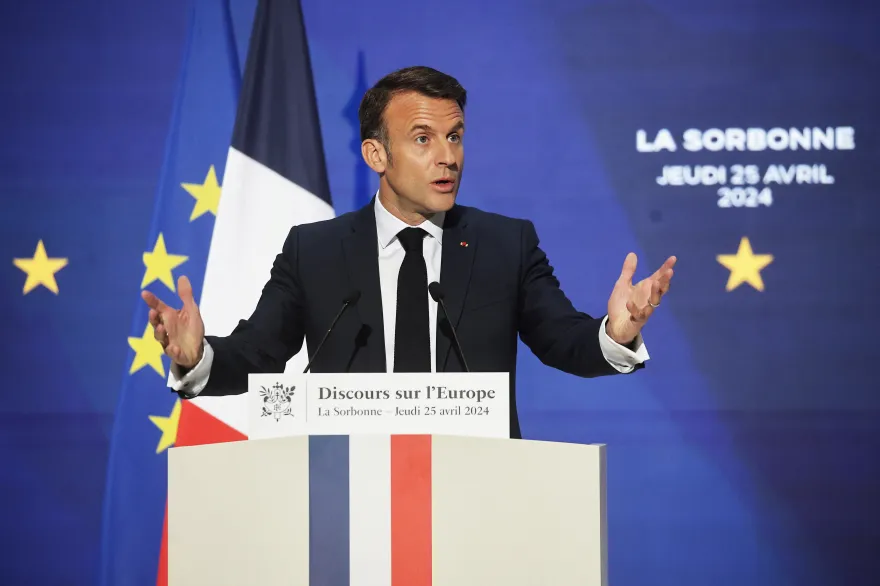Arab states have condemned the United States for vetoing another United Nations Security Council (UNSC) resolution demanding an immediate ceasefire in the Gaza Strip, as looming Israeli attacks on the southernmost Gazan city of Rafah raise concerns that the humanitarian crisis in the Palestinian enclave may deepen.
During an emergency session of the UN Security Council held in New York on Tuesday, the draft resolution put forward on behalf of Arab states by Algeria won 13 votes in favor among the 15 members of the Security Council. The United States voted against it, while Britain abstained.
Massive outcry
“The U.S. veto, which defies the will of the international community, will give an additional green light to Israel to continue its aggression against our people in the Gaza Strip and to carry out its bloody attack on Rafah,” the Palestinian presidency said in a statement carried by Palestine’s official news agency WAFA on Wednesday.
Secretary-General of the Arab League (AL) Ahmed Aboul Gheit on Wednesday voiced his “deep regret” over the U.S. move, the third time since the outbreak of the Israel-Hamas conflict in October last year that the United States interfered to fail a draft resolution aimed to reach a ceasefire.
The U.S. positions undermined the credibility of the international system and contributed to the paralysis witnessed by the United Nations, Aboul Gheit was quoted as saying in an AL statement.
Egypt and Qatar, having been actively brokering deals between Israel and Hamas since their conflict began, have expressed their regret.
Egypt strongly denounced the “selectivity and double standards in dealing with wars and armed conflicts in various regions of the world,” the Egyptian Foreign Ministry said in a statement on Tuesday.
In a statement released on Wednesday, the Syrian Foreign Ministry slammed the U.S. veto as “arbitrary and disgraceful,” accusing the U.S. of being hypocritical, as it claimed to support human rights while allowing the Israeli “killing machine” to continue its attacks on Palestinian civilians.
Jordan, which borders Israel and has normalized ties with Israel, expressed on Tuesday its regret and disappointment at the failure of the UN Security Council to adopt a resolution on a ceasefire in the Gaza Strip.
“All those impeding such calls should review their policies and calculations because wrong decisions today will have a cost on our region and our world tomorrow. This cost will be violence and instability, ” Algeria’s Permanent Representative to the United Nations Amar Bendjama was quoted by the UN news as saying on Tuesday.
Deep concern
The resolution was put forward at a time when Israel has signaled its intention to conduct a ground operation in Rafah, Gaza’s southernmost city that shelters about 1.4 million Palestinians, to “eliminate” Hamas and rescue Israeli hostages who were taken by Hamas militants in October.
While visiting the Israel Defense Forces (IDF) troops on Tuesday in southern Israel, Israeli Prime Minister Benjamin Netanyahu reaffirmed that his country will continue the fighting until all goals are achieved. “There is no pressure – none that can change this,” he said.
Israel’s reported plan for an assault on Rafah has sounded alarm bells globally, with many countries urging restraint or cancellation of the operation.
Regional countries, including Egypt, Saudi Arabia, the United Arab Emirates, Qatar and Bahrain, voiced deep concern over the potential offensive on Monday.
Twenty-six EU member states called for an “immediate humanitarian pause that would lead to a sustainable ceasefire” in the besieged Gaza Strip, the bloc’s foreign policy chief Josep Borrell said in Brussels on Monday.
U.S. adding to crisis
Despite the mounting calls for a ceasefire in Gaza, the Biden administration is preparing to send a new package of weapons to Israel, which is estimated to be worth tens of millions of U.S. dollars, the Wall Street Journal reported last week, citing anonymous U.S. officials.
“The Americans are not doing anything practical to stop the (Israel-Hamas) war,” said Youssef Diab, a political analyst from the Lebanese University.
The repeated trips to Israel by U.S. President Joe Biden and U.S. Secretary of State Antony Blinken, as well as the U.S. financial and military support for Israel, have given Israel the green light to continue the war on Gaza and kill more children, he said.
Source(s): CGTN

 News3 days ago
News3 days ago
 News6 days ago
News6 days ago
 News3 days ago
News3 days ago
 News6 days ago
News6 days ago
 News5 days ago
News5 days ago
 News3 days ago
News3 days ago
 News4 days ago
News4 days ago
 News5 days ago
News5 days ago


















